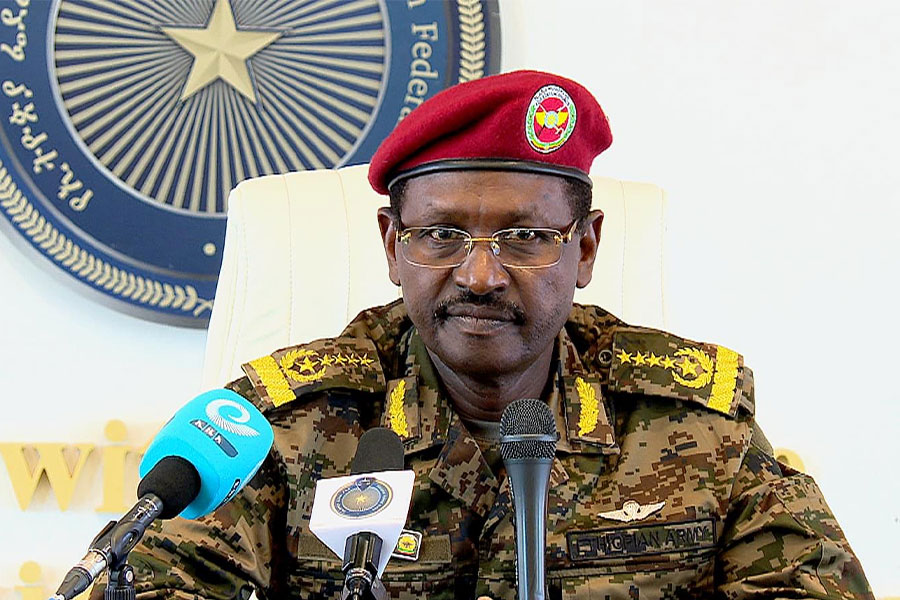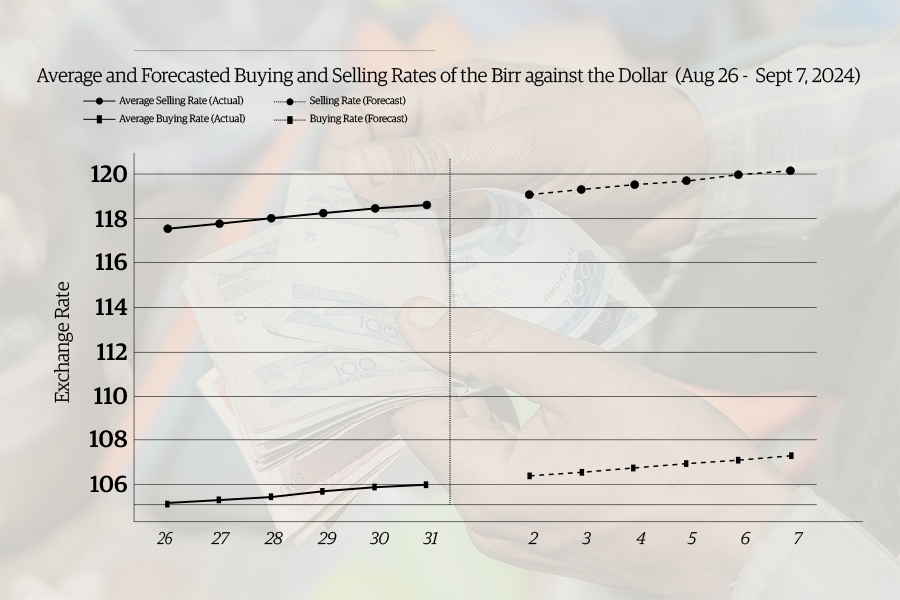
Sunday with Eden | Jul 01,2023
Apr 6 , 2024
By Hintsa Andebrhan
In a world increasingly defined by convoluted geopolitical dynamics, the echoes of Russia's invasion of Ukraine reverberate far beyond its immediate borders, stirring a cauldron of strategic recalibrations and diplomatic manoeuvrings.
At the heart of Moscow's justification is a claim steeped in national security concerns, primarily spurred by the expansionist tendencies of Western military alliances and policies perceived to be led by the United States (US). The Kremlin's diplomatic outreach has been robust. It aims to frame the invasion as a pragmatic defence of Russian sovereignty against the backdrop of NATO's presence near its borders.
Despite widespread condemnation, Russia has engaged in a sophisticated diplomatic campaign to articulate its position, leveraging historical grievances and security imperatives to court international understanding, if not outright support. Russia's diplomatic narrative emphasises the existential threats posed by NATO's eastward expansion, portraying its military actions as a last resort in safeguarding national security. While contentious, the Kremlin's position on Ukraine reflects a deep-seated apprehension about Western encroachments.
Parallel to its military exertions, Russia has embarked on a strategic economic offensive. In response to Western sanctions, Moscow has sought to de-dollarise its trade, aligning with countries like China, India, Brazil, and Saudi Arabia in a concerted effort to challenge the Dollar's hegemony in global commerce. This economic shift, part of a broader Russian strategy to counterbalance Western influence, signals a significant realignment in international trade dynamics, with potential long-term implications for global economic stability.
However, the unfolding saga is not confined to the European theatre. Its repercussions are felt in distant regions, notably the Horn of Africa, where Ethiopia finds itself at a geopolitical crossroads of shifting alliances and emerging challenges in international relations.
The Middle East, too, has witnessed a recalibration of Russian foreign policy, particularly in relation to the Israeli-Palestinian conflict. Once viewing Israel as a crucial ally, the Kremlin has shifted its perspective, advocating for a Palestinian state within the 1967 borders, with East Jerusalem as its capital. The policy shift, contrasting with prior Russian positions, shows Moscow's intent to challenge Western geopolitical interests in the region aggressively.
Another arena of Russian assertiveness is the Red Sea corridor, where Moscow has deployed warships in a purported mission against piracy. While presented as an effort to secure maritime routes, this move can broadly be interpreted as an attempt to bolster Russian influence in a strategically vital region, directly challenging Western and, particularly, United States interests.
Ethiopia appears to be in a precarious position amid these global chess moves. A landlocked and aspiring for maritime access, its leaders are caught in the whirlwind of shifting alliances and regional tensions. The United Nations Convention on the Law of the Sea (UNCLOS) provides a legal framework for landlocked countries to access the sea, yet realising such rights hinge on cooperative relations with coastal states.
Ethiopia's ambitions for a maritime corridor, apparently essential for its economic development and regional integration, face obstacles not only in logistics and legalities but also in international diplomacy. The geopolitical upheaval, illustrated by the Russian invasion of Ukraine and its global repercussions, adds layers of complexity to Ethiopia's quest. Relations with neighbouring countries, each with its own strategic interests and alliances, are crucial.
Ethiopia's foreign policy, particularly towards Somalia and Sudan, demands a nuanced approach that balances national ambitions with regional dynamics and the overarching shifts in global power structures. Reports of Ethiopia's potential territorial aspirations, as expressed by Kenyan politicians about regions like Marsabit and Lamu, add another dimension to the diplomatic challenges faced by Prime Minister Abiy Ahmed's (PhD) administration. Whether established or not, such assertions underline the sensitivities involved in regional relations and the importance of maintaining a diplomacy-first approach to addressing border and access issues.
The recommendation for Ethiopia to reassess its foreign policy, especially about the Red Sea and its coastal neighbours, is timely. A strategic reorientation towards building stronger alliances and a realistic appraisal of geopolitical shifts could enhance its position in a rapidly changing world. The country's engagement with Somaliland and the broader Somali political landscape, alongside its position on the Sudanese border dispute, should say a lot about pursuing national interests and contributing to regional stability.
The interconnectedness of global events has never been more apparent. The fallout from Russia's invasion of Ukraine extends beyond the immediate conflict zone, influencing international relations, economic strategies, and regional geopolitics. The challenges are manifold for countries like Ethiopia, situated in strategically important but volatile regions. Navigating these challenges requires a balanced approach considering the evolving global landscape, regional dynamics, and national interests.
PUBLISHED ON
Apr 06,2024 [ VOL
25 , NO
1249]


Sunday with Eden | Jul 01,2023

Verbatim | Jun 21,2025

Life Matters | Apr 25,2020

Money Market Watch | Sep 01,2024

Radar | May 27,2023

Radar | Mar 23,2019

Fortune News | Mar 09,2024

Commentaries | Jan 13,2024

Commentaries | Jan 03,2021

Fortune News | Aug 19,2023

My Opinion | 131586 Views | Aug 14,2021

My Opinion | 127942 Views | Aug 21,2021

My Opinion | 125917 Views | Sep 10,2021

My Opinion | 123541 Views | Aug 07,2021

Dec 22 , 2024 . By TIZITA SHEWAFERAW
Charged with transforming colossal state-owned enterprises into modern and competitiv...

Aug 18 , 2024 . By AKSAH ITALO
Although predictable Yonas Zerihun's job in the ride-hailing service is not immune to...

Jul 28 , 2024 . By TIZITA SHEWAFERAW
Unhabitual, perhaps too many, Samuel Gebreyohannes, 38, used to occasionally enjoy a couple of beers at breakfast. However, he recently swit...

Jul 13 , 2024 . By AKSAH ITALO
Investors who rely on tractors, trucks, and field vehicles for commuting, transporting commodities, and f...

Jun 28 , 2025
Meseret Damtie, the assertive auditor general, has never been shy about naming names...

Jun 21 , 2025
A well-worn adage says, “Budget is not destiny, but it is direction.” Examining t...

Jun 14 , 2025
Yet again, the Horn of Africa is bracing for trouble. A region already frayed by wars...

Jun 7 , 2025
Few promises shine brighter in Addis Abeba than the pledge of a roof for every family...

Jun 29 , 2025
Addis Abeba's first rains have coincided with a sweeping rise in private school tuition, prompting the city's education...

Jun 29 , 2025 . By BEZAWIT HULUAGER
Central Bank Governor Mamo Mihretu claimed a bold reconfiguration of monetary policy...

Jun 29 , 2025 . By BEZAWIT HULUAGER
The federal government is betting on a sweeping overhaul of the driver licensing regi...

Jun 29 , 2025 . By NAHOM AYELE
Gadaa Bank has listed 1.2 million shares on the Ethiopian Securities Exchange (ESX),...